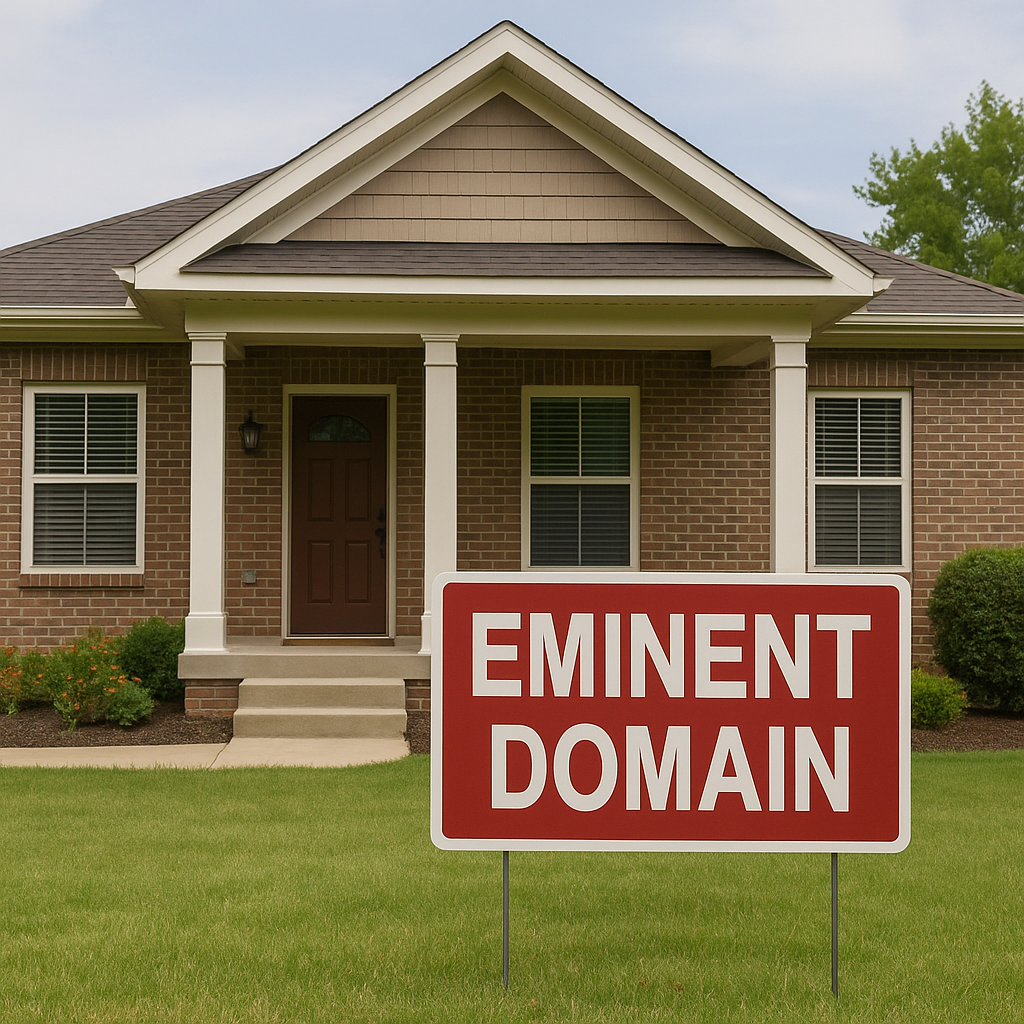If your home or business is suddenly in the path of a new highway, school, or utility line, it’s normal to feel shocked and powerless. You didn’t cause this. But you do have important legal protections. Florida eminent domain law gives property owners strong rights — and when the government comes to your door, you deserve answers and a team that knows how to fight for you.
At Nation Law, we help Florida families and business owners navigate this process with confidence, compassion, and clear guidance. Here’s what you need to know if the government wants to take your property.
Eminent domain is the power of the government (or certain utilities) to take private property for a public project, such as a road, school, or drainage improvement. In Florida, they can only do this for a legitimate public purpose and only if they pay you “full compensation.”
Full compensation means more than just a low-ball offer. It can include the fair market value of the land taken, damage to any remaining property, and, in some cases, business losses and moving costs. You don’t have to accept whatever they first put on the table.
Most cases start with a letter or visit explaining that your property is needed for a specific project. The government must hire an appraiser and make you a written “good-faith” offer based on that appraisal. You’re entitled to see how they arrived at the number, including project maps and the appraisal report.
You usually have at least 30 days to respond. This is your time to breathe, ask questions, and get help. Don’t sign anything or assume the first offer is final. Once you accept a settlement, it’s very hard – and often impossible – to go back for more.
Florida law is very owner-friendly. One of the most important protections: the government is required to pay your reasonable attorney’s fees and many of your expert costs in an eminent domain case. That means you can hire an experienced eminent domain lawyer without paying upfront.
• Get your own independent appraisal
• Challenge low or incomplete valuations
• Document how the project will affect the value of your remaining property
• For qualifying businesses, pursue business damage claims when access or visibility is harmed
You deserve to know the real value of what you’re losing – and you don’t have to navigate this alone.
If you don’t reach an agreement, the government can file an eminent domain lawsuit. In many Florida cases, they ask the court for a “quick take,” which allows them to take title and start construction after depositing what they claim is fair compensation with the court.
You can still fight back. Through your attorney, you may:
• Challenge whether the project is truly for a public use
• Question whether the taking is really necessary or is larger than needed
• Object if the government skipped required steps, like proper notice or good‑faith negotiation
Even if the court allows the taking, you still have the right to seek more money than what was deposited.
If the case doesn’t settle, a 12-person jury can decide how much you’re owed. They will hear from appraisers and other experts for both sides and decide:
• The value of the property taken
• Any loss in value to the remaining property
• Any qualifying business damages
Mediation is common before trial and often leads to higher offers once the government sees the strength of your case. Throughout this process, Nation Law focuses on one goal: securing full, fair compensation so you can move forward with stability and dignity.
Eminent domain can turn your life upside down. We’re here to help you steady it again.
• Personal attention from a team that treats your case like it’s their own
• Clear explanations of every step, in plain language
• Access to top appraisers and experts, with no upfront fees
• A firm that isn’t afraid to take your case to trial when that’s what justice requires
You trusted us. We’re honored to fight for you.
If you’ve received an eminent domain notice or offer anywhere in Florida, don’t wait and don’t go it alone. Call now for a free case review. We’ll evaluate your situation, explain your options, and help you protect your Florida eminent domain rights from day one.
This article is for general information only and is not legal advice. For guidance on your specific situation, speak with an attorney licensed in Florida.
